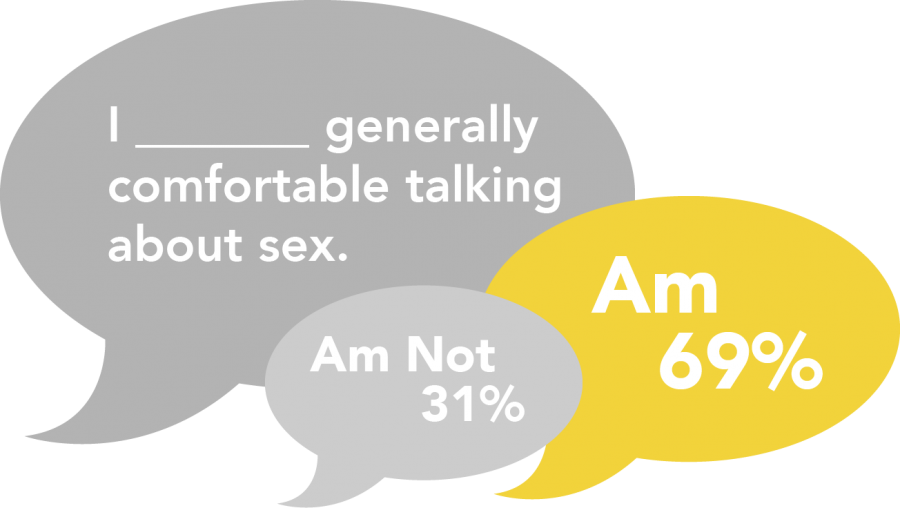Students say masturbation is stigmatized based on gender
Survey of 228 students from Jan. 19, 2017 to Jan. 20, 2017.
February 18, 2017
Masturbation. Just saying the word can bring cringes, averted eyes and red cheeks, which is why there are hundreds of euphemisms to avoid saying it.
But here’s the truth: a 2011 study by JAMA Pediatrics, a publication of the Journal of the American Medical Association, surveyed 800 teenagers between the ages of 14 to 17. Of those surveyed, 74 percent of the boys and 48 percent of the girls said they masturbate. And according to the study, that’s the minimum.
“In research on sexual behavior, masturbation is among the most sensitive topics, and underreporting by adolescents has been found even with the use of confidential reporting techniques,” the study reported.
Masturbation is also a growing theme in the media, especially television. Male masturbation has been relatively common on the screen for years now: “Sex and the City,” “the Big Bang Theory” and “Seinfeld,” just to name a few.
But with the rise of shows like “Girls” and “UnREAL,” female masturbation is starting to become a common theme in pop culture too. “UnREAL” co-creator Sarah Gertrude Shapiro told the Huffington Post her desire to include masturbation in the life of her female lead.
“My total impetus for making stuff is about humanizing women,” Shapiro said. “And I just think [masturbation] is a really normal part of being human.”
Despite the fact that masturbation is a mainstream phenomenon that has entered our screens, many teens, including a CHS female, still feel the subject is taboo.
“It’s too awkward… it’s none of their business … I would be going across their boundaries,” she said. “I don’t even know if I would admit it to a doctor.”
Yet Debra Harmady, a licensed doctor of medicine at Venture Pediatrics in Middletown, encourages the discussion.
“Masturbation is completely normal… That’s actually a great way to relieve sexual frustration without having to worry about getting pregnant or an STD.”
Some students believe that there is a double standard associated with masturbating.
“I think there’s a stigma around it … especially for girls, it’s like you shouldn’t know what it is, you shouldn’t be doing it, you shouldn’t know your body,” the female student said. “Honestly, if I was a boy, I think my parents would have had a conversation with me about it.”
A male CHS student thinks the difference may stem from traditional views of males and females when it comes to sex.
“Men are…perceived as more sex-driven than women are so I feel like…women are less likely to talk about it because they aren’t supposed to be as into that as men are,” he said. But the female student believes that even if you are casually talking with friends, being open with someone is important.
“It’s not something you’re going to talk about at the dinner table,” the female student said. “But if you’re hanging out with a friend and wanna have an honest conversation with them, then I think it’s fine.”







